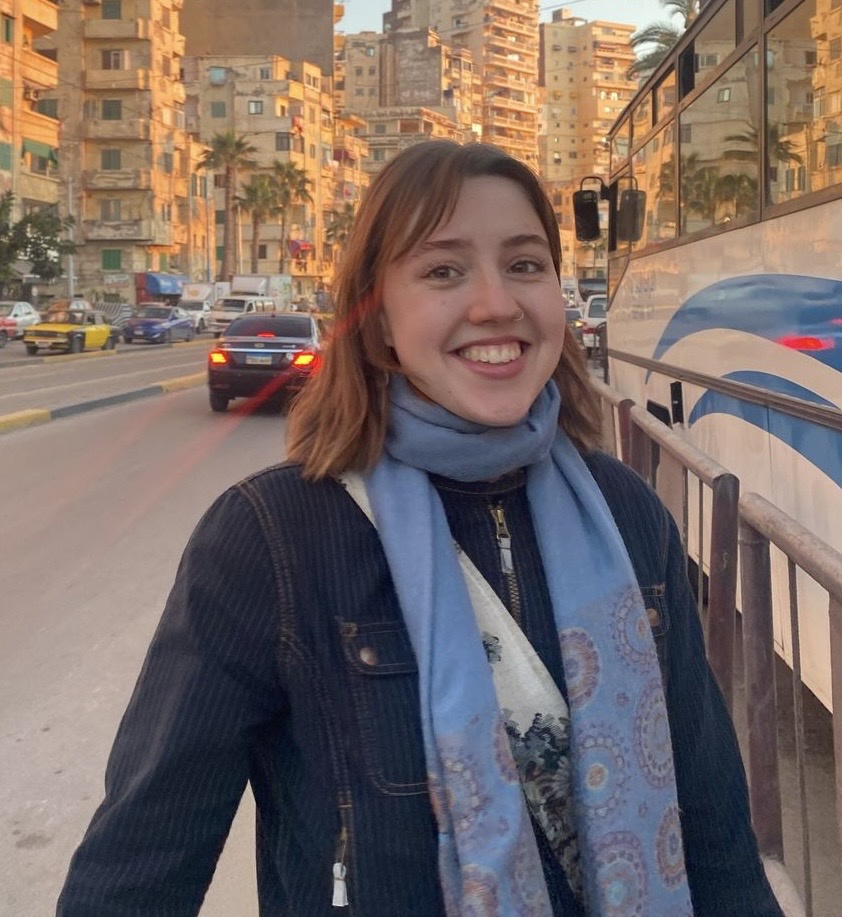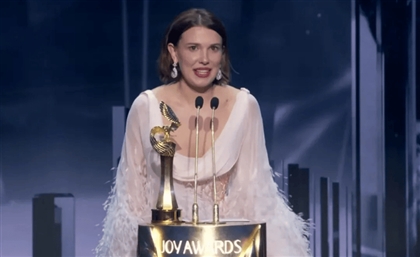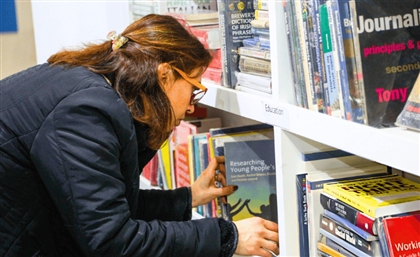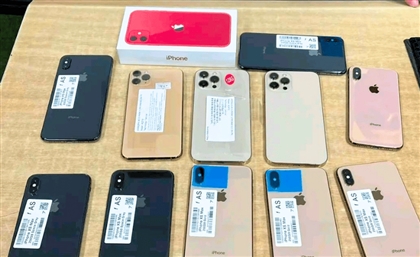This Content Creator Brings Classical Arabic Poetry to the Digital Age
Weaving classical Arabic poetry into GRWMs and car rides, Halaa isn’t diluting FusHa, she is democratising it.
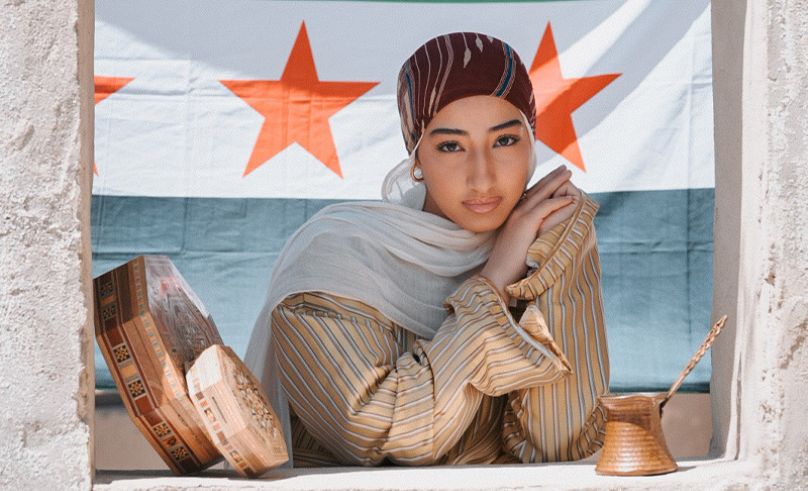
At the intersection of heritage and the algorithm, one creator is proving that classical Arabic poetry truly is timeless. Between the soft clink of rings and the mundane rhythm of daily errands, content creator Hala is reviving classical Arabic poetry over social media. Her videos, set to the backdrop of car rides and gentle routines, unspool the linguistic richness of Qabbani and Al-Mutanabbi with a modern cadence, reframing classical verse for a generation raised on scrolls and swipes.
As the eldest daughter in an Arab household in the US, Hala’s first encounters with classical Arabic weren’t through textbooks, but through the melismatic qasidas of singers like Nagat Al Saghira.
“My dad would play them on roadtrips,” Hala tells CairoScene. “The songs are all super long, the shortest is probably 40 minutes. I was so curious: ‘What are they saying?’ ‘What does it mean?’ I would watch him being moved by the music, and I would think: ‘She’s been singing for forty minutes, how are you still enjoying this?’”That curiosity continued to be cultivated by her father, whose quizzes on the meaning and lectures on the pronunciation of classical Arabic fostered a love for classic Arab music, and the verses that came before. Tracing this isnad of classical Arabic, from Pre-Islamic to Nizar Qabbani to Nagat Al Saghira’s music, Hala found a new type of entertainment, one that felt rewarding as well-rooted.
“I would recite to my computer and film the poems,” Hala recalls. “But I never thought I was reciting them correctly, nor that anyone would care.”
-96259a08-96ce-4b2b-8c10-08c69edc3523.jpg) Then, in August 2024, she posted a casual video - putting on rings, reciting a verse - and it went viral. The clip resonated with a diasporic audience estranged from the linguistic depth and nuance of their language. Go to the comments on any video and you’ll find the same thing: “I’m fluent in Arabic but not in this type of Arabic.” Through these videos, Hala taps into a collective gap in knowledge, offering her audience a piece of heritage that never seemed accessible.
Then, in August 2024, she posted a casual video - putting on rings, reciting a verse - and it went viral. The clip resonated with a diasporic audience estranged from the linguistic depth and nuance of their language. Go to the comments on any video and you’ll find the same thing: “I’m fluent in Arabic but not in this type of Arabic.” Through these videos, Hala taps into a collective gap in knowledge, offering her audience a piece of heritage that never seemed accessible.
“Poetry is such a deep, intricate form of language,” Hala explains. “Especially Arabic. Arabic contains such a multitude of words and synonyms for so many things. For people who grew up in the West, they don’t understand all the meanings, they didn’t grow up around the metaphors and structures exhibited in classical poetry.”
Her TikTok playlist, Fikra w Khatira, feels less like a short-form content series and more like a digital majlis. A modern-day salon where the esoteric complexity of Al-Mutanabbi is softened by bilingual subtitles, and the uvular crack of a qaf feels instinctual over the backdrop of a GRWM. In this unlikely setting, Hala has carved out an archive and a classroom where poetry is no longer distant or impenetrable.
-7e79e153-a268-4ba3-a328-275d090f0018.jpg) Asked whether she approves of the moniker ‘The Poetry Girl’, she laughs:
Asked whether she approves of the moniker ‘The Poetry Girl’, she laughs:
“What else do I want to get famous for? The Get Ready With Me Girl?! I like being ‘The Poetry Girl’,” Hala asserts. “I have tried different ways of storytelling, but poetry touches my heart in a particular way, and it resonates with others too.”
Hala’s page isn’t just a balm for the Arab diaspora; it stands as an advocate for poetic expression. A reminder that poetry, especially in Arabic, is an inimitable means of emotional translation, articulation, and healing.
-bcadc969-c01a-4443-9556-b5a738fd11eb.jpg) “I speak three languages,” Hala says. “None of them describe the process of emotions that a human goes through in the way Arabic does. There are twelve stages of love, twelve ways to describe love: from yearning to delight.”
“I speak three languages,” Hala says. “None of them describe the process of emotions that a human goes through in the way Arabic does. There are twelve stages of love, twelve ways to describe love: from yearning to delight.”
What Hala offers, ultimately, is connection. The same way her father once shared music and meaning on road trips, she now shares verse with strangers. And in her hands - and voice - Arabic poetry, once perceived as lofty and opaque, finds a new intimacy. Whether she is reciting Al-Mutanabbi from the driver’s seat, or translating taboo poems by Qabbani in a GRWM, her content doesn’t dilute the material, it democratises it.
- Previous Article SELECTS: A Retro Rewind with Egyptian Artist ‘MarceloMarc’
- Next Article Abo El Anwar Returns in New Colour With ‘AFTARAT’
Trending This Week
-
Jan 18, 2026
-
Jan 18, 2026







